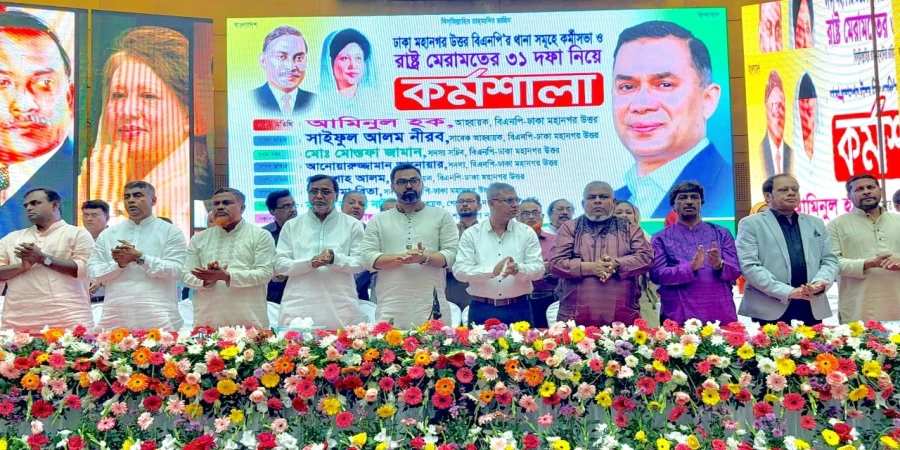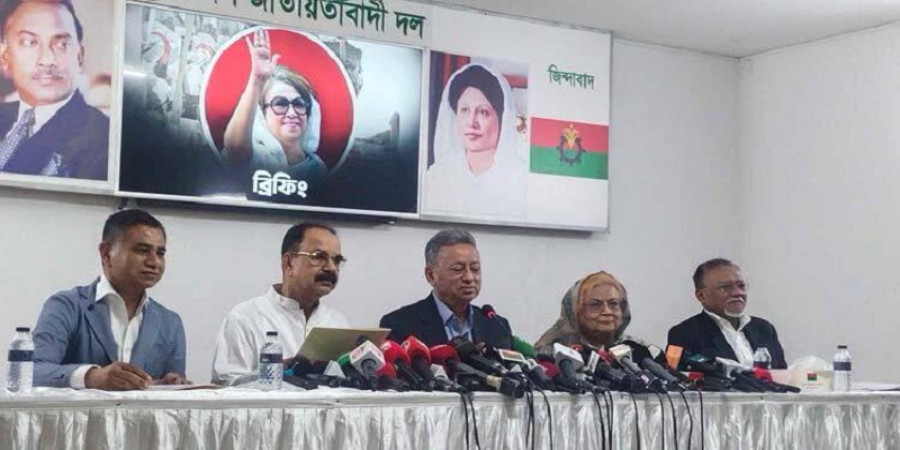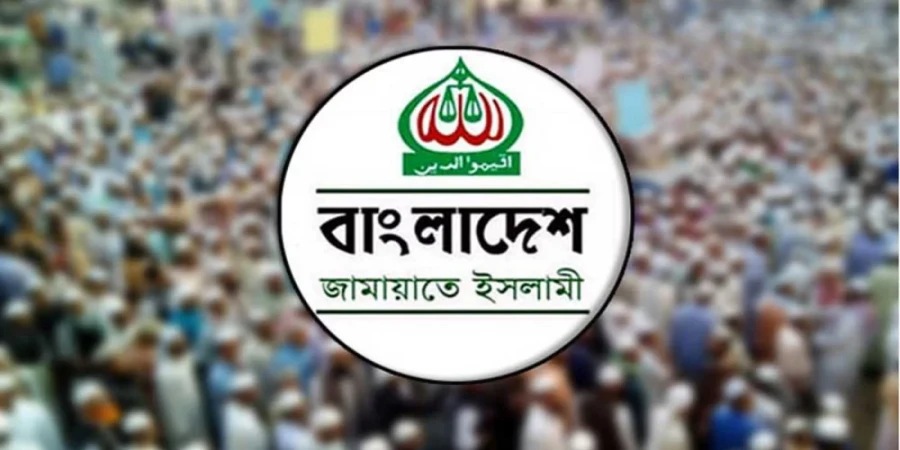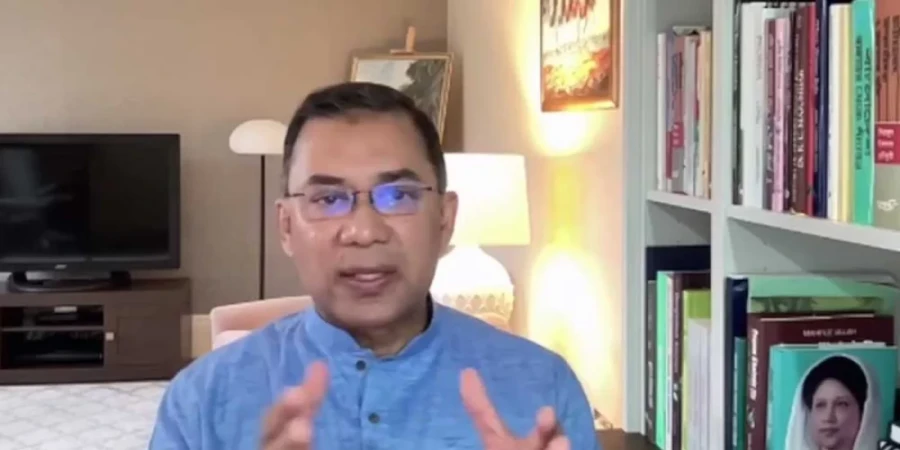
ছবি: Photo: Collected
Aminul Haq, the Central Sports Affairs Secretary of the Bangladesh Nationalist Party (BNP) and convener of Dhaka Metropolitan North, has demanded swift elections to establish democracy in the country. Speaking at a workers' meeting and workshop on the 31-point agenda for state reform organized by the Sher-e-Bangla Nagar Thana BNP, Haq emphasized that the people of Bangladesh want immediate elections and the right to vote. He urged the interim government to hold elections promptly so that the people can choose their representatives to form the government.
The event took place on Sunday (March 2) at the China Friendship Conference Center in the capital. In his address as the chief guest, Haq stated that while the country was freed from autocracy on August 5, it has not yet been fully liberated from its remnants. He argued that complete reform of the administration is impossible as long as those who supported autocracy remain in power. According to Haq, a fully elected government is necessary to achieve comprehensive reform.
Haq stressed the importance of connecting with the people, stating that the BNP believes in the possibility of a free and fair election in Bangladesh. He expressed confidence that if the BNP is elected by the people, it will work for the welfare and development of the country's citizens. He criticized the ruling Awami League, accusing it of focusing on superficial development while neglecting the real needs of the people. Haq claimed that the Awami League has only worked to enrich itself rather than improving the lives of ordinary citizens.
The BNP leader also assured that if the party gets the opportunity to form the government, it will implement Tarique Rahman's 31-point agenda to bring about significant changes in the lives of the people. He reiterated the BNP's commitment to addressing the concerns of the common people and ensuring their development.
The workshop was attended by several prominent BNP leaders, including Abdus Salam, a member of the BNP Chairperson's Advisory Council, and former convener of Dhaka Metropolitan North BNP, Saiful Alam Neerob. Other speakers included Mostafa Zaman, the current member secretary of Dhaka Metropolitan North BNP, joint conveners Mostafizur Rahman Segun, SM Jahangir Hossain, Ferdousi Ahmed Misti, ABM A Razzak, Ghazi Rezaul Hossain Riaz, Akhtar Hossain, M Kafil Uddin Ahmed, Haji Mohammad Yusuf, Afaz Uddin, Tahirul Islam, Shah Alam, and Mahabub Alam Montu.
The event highlighted the BNP's commitment to democratic principles and its determination to bring about meaningful change through a people-centric approach. Haq's call for swift elections reflects the party's belief in the power of the people to shape the future of the country.
The BNP's 31-point agenda, which focuses on state reform and addressing the needs of the people, was a central theme of the workshop. The party leaders discussed various strategies to implement this agenda and emphasized the importance of grassroots mobilization to connect with the public.
Haq's remarks come at a time when the political landscape in Bangladesh is marked by tension and uncertainty. The demand for elections and the establishment of a legitimate government has been a recurring theme in the opposition's rhetoric, as they seek to challenge the ruling party's dominance.
The BNP's emphasis on democracy and reform resonates with many citizens who are eager for change and greater accountability in governance. By advocating for a free and fair election, the party aims to position itself as a viable alternative to the current administration.
In conclusion, Aminul Haq's call for swift elections underscores the BNP's commitment to democratic principles and its determination to address the needs of the people. The party's focus on reform and grassroots mobilization reflects its belief in the power of the people to shape the future of Bangladesh. As the political landscape continues to evolve, the demand for elections and the establishment of a legitimate government is likely to remain a key issue in the country's political discourse.
repoter






